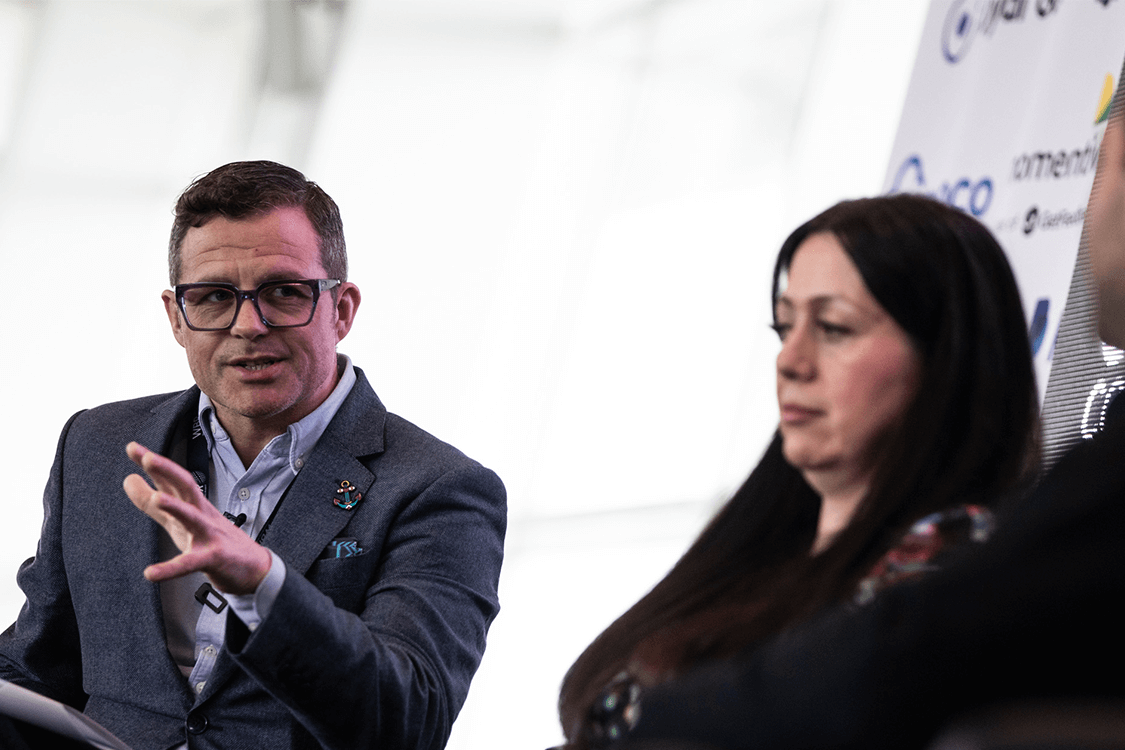Outside keynote speakers are sought out for their outsider perspective; Ian Hawkins argues that an external moderator can achieve the same.
Whether it’s an explorer rallying the sales team or a minister reflecting on leadership with partners, event organisers bring in guest speakers precisely to avoid the conversation drifting back to “business as usual”. A speaker who can broaden minds and influence the conversations that follow, has a powerful, positive influence on the outcome of an event.
Guest keynotes are important focal points of an event, but there is also value in infusing an outsider perspective through the whole programme. I call this (rather grandly) “the grammar of objectivity”, events that achieve this have a distinct flavour that lifts them above a series of sales pitches.
Picture the scene: 8:59am, 150 CIOs, seated cabaret-style, finishing their pastries and sipping coffee. Waiting in the wings, slides ready to go, the opening speaker, a CIO from a blue chip. Between them, me: the moderator. Clearly the person who knows the least about the subjects on today’s agenda. But my job is not to bring knowledge, it is to bring “the grammar of objectivity”.
While it may seem logical to have an industry insider acting as the glue holding these events together, there are tangible benefits to having a master of ceremonies who is conspicuously not of the world from which the other speakers and audience may be drawn.
The benefits
This “outsider perspective” brings many benefits all descending from the original idea of objectivity.
First, there is the opportunity to bring in perspectives from elsewhere: issues that affect one industry often have equivalents in another and a moderator who has a broad experience of different businesses is likely to be able to ask the right questions to open up useful areas of discussion.
For internal events, neutrality is a less-used, but useful, tool: for some reason, CEOs like to host internal events, which always feels like a missed opportunity. Leaders have better and more valuable things to do, such as listening to their people, rather than standing on a stage and talking at them. With remote working limiting the opportunities businesses have to bring people together, face to face one to ones are more important than ever. When it comes to debate, it’s too tempting for a boss to take over a conversation and for the underlings to avoid impertinent questions. CEOs should approach event chairing like they approach managing their diary: something to outsource early.
Returning to the “grammar of objectivity”, a business that uses an independent moderator for an internal event is showing a very clear signal that they value new ideas and are open to change. An independent moderator flattens the hierarchy and gives more people a chance to be heard, especially those who are normally talked over.
Finally, external presenters may have limited technical knowledge, but they are quickly understood to be the face of the event, a lightning rod for the feeling in the room, whether it’s marshalling questions for the VIP speaker or getting focus back after the fire alarm has gone off. The grammar of objectivity – in which a presenter is deliberately impartial – brings an extra layer of credibility to the whole event: it stops proceedings from feeling like a biased point of view and encourages the audience to consider an idea on its merits rather than on the status of the person who said it.
Ultimately, the value of the external moderator is that they make sure that discussions are fair, assumptions are challenged and messages are distilled into memorable, actionable insights, as well as making sure that the agenda keeps to time.
Knowing enough to ask the right questions is essential – that’s the role of briefing.
Knowing too much can give the impression the presenter is more expert than the experts.
The grammar of objectivity is key to giving the audience the best possible experience on the day. That is surely where the true value of any event lies.
About the author:
Ian Hawkins is a moderator and keynote speaker on storytelling and change.
His keynote presentations describe stories as “the software our brains run on” and give audiences the tools to overcome barriers to change for themselves and their organisations.
Connect at www.linkedin.com/in/ianrhawkins















